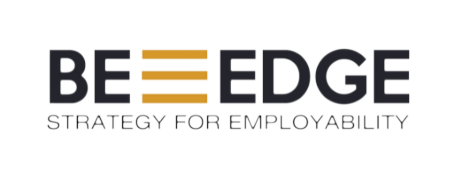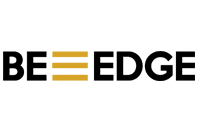ROBINHOOD: Domestic Growth or International Expansion?
Catrina Lopes, Mark Caprio, Daniel Wu, Ernest Attufuah, Tristen Herbert (MBA)
Title: Robinhood – Domestic Growth or International Expansion?
Subject area: Financial Services, stock trading platform
Region: United States, United Kingdom
Industry: Finance, investing, financial services
Company: Robinhood
Decision Makers: Vladimir Tenev and Baiju Bhatt, Robinhood Co-CEOs
Dilemma: In the Summer of 2020, co-founders Vladimir Tenev and Baiju Bhatt of Robinhood were experiencing a large influx of users signing up for their financial trading platform due to individuals staying at home in response to the Covid-19 pandemic. This provided a unique opportunity for Robinhood to either improve their position domestically, or attempt to replicate this growth in expanding to the United Kingdom. If Robinhood was not proactive, they may find themselves at a disadvantage to competitors in both markets.
Investment in Personal Capital:
Robinhood operates in the finance space, which all of our members have an interest in.
Daniel Wu: Robinhood operates in the finance/investments space, which relates to my professional and personal interests as a financial analyst and a personal investor in stocks and crypto currency. Growing up, concepts such as budgeting, compound interest, debt management, or even balancing a checkbook were not taught in class. I believe financial literacy should be a core curriculum taught in school, and thus agree with Robinhood’s efforts to educate their users as much as possible.
Tristen Herbert: I have always been passionate about the trading of stocks and learning about crypto currency and started trading and investing in it at a young age thus why I chose to pursue a major in finance in my undergrad studies as a financial analyst. The first platform I used was Robinhood. Hence why I am passionate about this case because i see the benefit that Robinhood has and its efforts to educate the world about investing,
Mark Caprio: I have worked in the discount brokerage (consumer equity, fixed income, and options trading) industry for the entirety of my professional career (six years). For the past year, my responsibility has been that of a Digital Channel Consultant. My team works with developers and other business stakeholders to drive value in the digital space (trading website and mobile application). Our team also monitors traditional and non-traditional competitors to see where there are opportunities for growth and defense. On a personal note, I enjoy following financial markets, miscellaneous equities, and the banking industry for educational and speculative purposes.
Catrina Lopes: I currently work for a small community bank, so I have plenty of exposure to the financial industry, but not much experience or knowledge in investment banking. Like Robinhood, we are always looking for ways to stay at the forefront of technology. We are continually upgrading our online and mobile banking services, as well as finding new ways for customers to iBank. This has been especially true this year given the current pandemic and social distancing guidelines. For a number of months our lobbies were closed and our customers had to learn how to use and rely on our iBanking solutions. While we are a very small bank (asset size of $235mm) and will probably never expand overseas, I took this opportunity to learn about what another financial firm was doing with their technology and how they were handling customer comments and complaints.
Investment in Social Capital:
One of our group members, Mark Caprio, works with the Merrill investing platform from Bank of America, and was able to provide a ton of color on what research we should be looking for. He was a key member in understanding the issues Robinhood faces in America, and would face in the UK. Although Robinhood is not a publicly traded company, much of their information was accessible online (it just was not consolidated within a 10k or annual report). What was not easily accessible was political/legal regulations in the UK concerning investments in stocks and bonds and the management of broker/dealers. Similarly, demographic specific investor data is also unviable in the US and UK due to privacy laws, making strategic planning for Robinhood difficult.
Investment in Professional Capital:
By taking advantage of numerous frameworks learned in class, such as SWOT, PESTLE, and Porters 5 Forces, we analyzed both the US and UK markets and industry. We thus concluded that expansion into the United Kingdom would be the best course of action for Robinhood, and again took advantage of our knowledge on global strategies and entry mode to give further recommendations that would provide the best opportunity for success.
Capitals’ Utilization:
This project was an opportunity for our team to apply international business strategy and knowledge we have gained over the course of the semester. Here is what we said while reflecting on our journey:
Daniel Wu: As I personally have interest in becoming an expert in international project implementation, I believe this project has given me knowledge and skills that are invaluable for my professional development. The ability to evaluate a company’s financial predicament, understand their goals, and analyze potential options while utilizing course frameworks will only assist my problem solving and critical thinking skills as a global manager.
Tristen Herbert: I now believe that I am one step closer to achieving my goal of becoming a successful international CFO and international business owner. This project has advanced my analytical, critical and problem-solving skills and has given me the leverage that I need to tackle whatever task will come my way. Finally completing this case has put me at a competitive advantage over other applicants in the field for I have more experience in the area.
Mark Caprio: As a Digital Channel Consultant for Merrill Self-Directed Investing, this project greatly assisted some of my professional undertakings. Specifically, the Robinhood Case allowed both myself and my team to gain a greater understanding of the competitive landscape amongst domestic broker/dealers, the value proposition associated with the most popular trading application amongst Millennial investors, and the hurdles associated with expanding into new geographic markets (which is seldom discussed within my professional group). Perhaps the main takeaway I have from this exercise is the identification of “ESG: Environmental, Social, and Governance” as an opportunity for Merrill Self-Directed Investing (because no other domestic competitor has demonstrated itself as an industry leader).
Catrina Lopes: This project helped me advance my knowledge of the investment banking industry and the emerging digital capabilities within that sector. As the bank I work for continues to advance their own digital offerings, I learned what other financial firms are currently doing and working towards. Most importantly and immediately applicable, I learned how to analyze a business from the inside-out, and this skill will be invaluable in my very-recent promotion to Assistant Bank Controller. I’ve expanded my knowledge about how businesses make the decisions they do, and I will be able to integrate this into my new position beginning in 2021.










0 comments
Write a comment